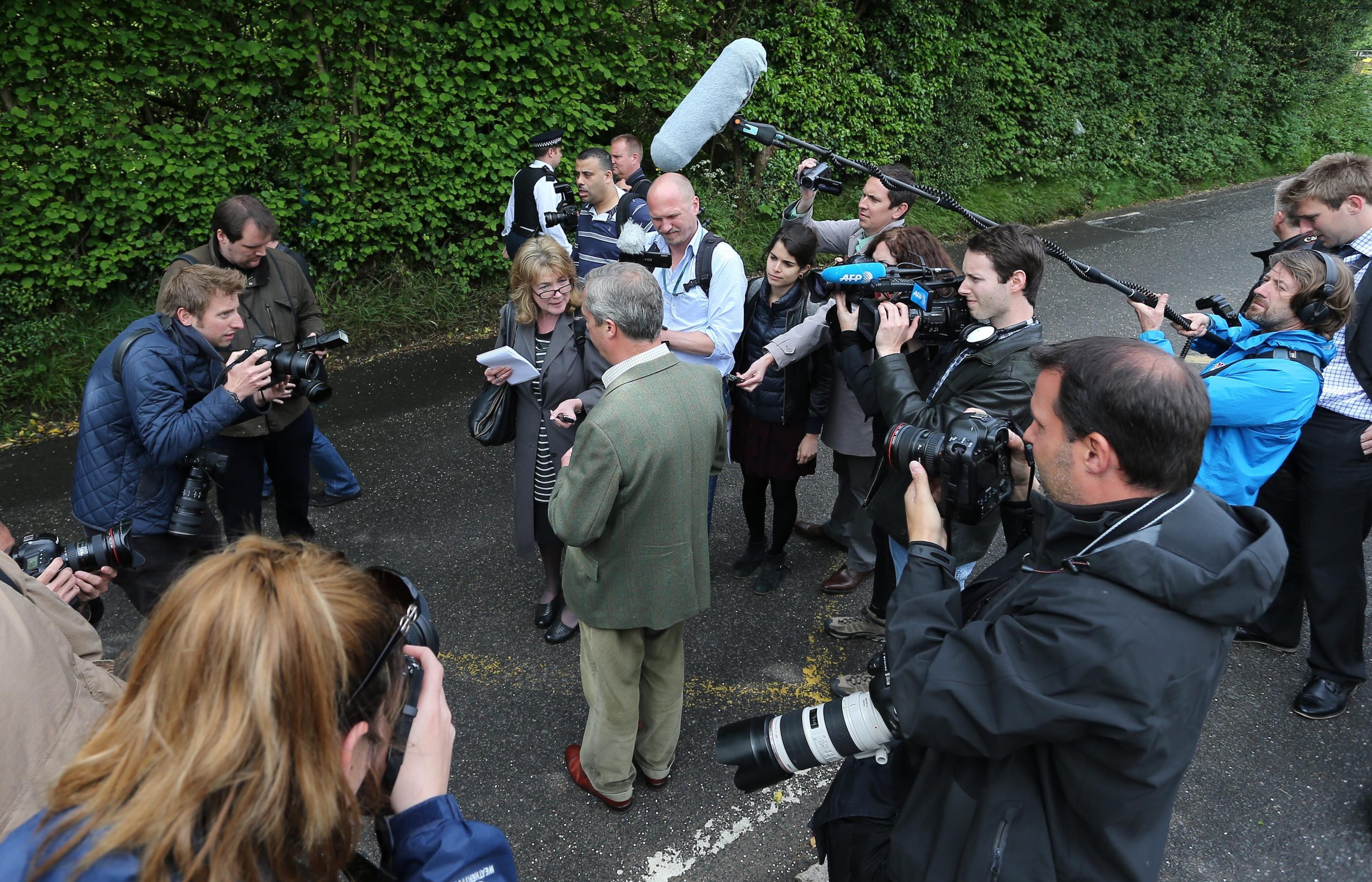 Academic freedom is in danger. Thomas Docherty explains how cuts are damaging universities across the UK
Academic freedom is in danger. Thomas Docherty explains how cuts are damaging universities across the UK
One morning in June 1946, Hannah Arendt received a package at her home in New York. As a Jew, Arendt had not been permitted to teach in German universities; and, like many German-Jewish intellectuals, she found refuge in America. The package she received that morning contained a book, The Idea of the University, written by her former academic supervisor, Karl Jaspers. It was a new edition of a book Jaspers had initially published in 1923; in its 1946 revision, it became a contribution to the de-Nazification of the German university system and German society. Arendt read it avidly, immediately exploring the possibility of having it translated for a wide audience. 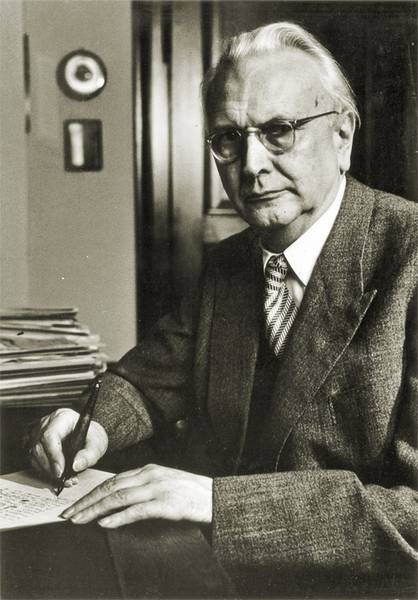 The book was amongst the first to formulate a post-war credo of academic freedom. Jaspers saw its importance for the renewed health of a university system and of a society that had been corrupted by authoritarian restrictions on freedom of thought, speech and action under Nazism. Academic freedom permits the scholar to follow fearlessly whatever lines of inquiry are demanded by the disinterested pursuit of truth and knowledge in any field; and the actual and material realisation of this freedom lies in the dissemination of such knowledge through teaching. To teach is to enact those very freedoms of thought that academic research strives to imagine. Substantial funding cuts in the UK are severely undermining Jasper’s tenets. Since Lord Browne’s higher education review two years ago recommended slashing the university teaching budget by 80 per cent, the pace has accelerated. In a climate of public sector austerity there now even appears to be a logic to the cuts, but the impact on academic freedom is profound. Why does it matter? The licence to engage with ideas that are critical of social norms and existing values depends on that freedom. Its curtailment encourages the establishment of orthodoxy and promotes authoritarian forms of governance that stifle freely spoken critique.
The book was amongst the first to formulate a post-war credo of academic freedom. Jaspers saw its importance for the renewed health of a university system and of a society that had been corrupted by authoritarian restrictions on freedom of thought, speech and action under Nazism. Academic freedom permits the scholar to follow fearlessly whatever lines of inquiry are demanded by the disinterested pursuit of truth and knowledge in any field; and the actual and material realisation of this freedom lies in the dissemination of such knowledge through teaching. To teach is to enact those very freedoms of thought that academic research strives to imagine. Substantial funding cuts in the UK are severely undermining Jasper’s tenets. Since Lord Browne’s higher education review two years ago recommended slashing the university teaching budget by 80 per cent, the pace has accelerated. In a climate of public sector austerity there now even appears to be a logic to the cuts, but the impact on academic freedom is profound. Why does it matter? The licence to engage with ideas that are critical of social norms and existing values depends on that freedom. Its curtailment encourages the establishment of orthodoxy and promotes authoritarian forms of governance that stifle freely spoken critique.
Academic freedom — crucial to a thriving democracy
The 1946 context makes clear what is at stake: the university, built onacademic freedom, is an institution that seeks to realise the freedoms that will give an emergent democratic society its various identities, arguments and openness to future possibilities. Such openness of spirit had been precluded while the university sector was the instrument of an ideologically determined political programme. Nazism permitted only those academic activities that were consistent with its aims. All else was illegitimate. For Jaspers, as for Arendt, academic freedom is more than merely academic.
In the UK, we have two constitutional post-war definitions of academic freedom. For the 1963 Robbins report, it is the freedom to publish, to teach according to a teacher’s own concept of fact and truth, and “to pursue what personal studies and researches are congenial”. For Robbins, academic tenure guarantees such freedoms. When the 1988 Education Reform Act abolished tenure, it redefined academic freedom. Section 202 of the Act gave academics “freedom within the law to question and test received wisdom, and to put forward new ideas and controversial or unpopular opinions, without placing themselves in jeopardy of losing their jobs or privileges that they may have at their institutions”.

No one seriously is suggesting the abandonment of such principles. However, thanks to the economic logic of cuts to public expenditure, we have drifted insidiously and gradually towards that dangerous state of affairs where the spectres of “official knowledge” and “official teaching” are increasingly visible and material. If Jaspers and Arendt are right, then our predicament may be all the worse for the fact that we fail to see our democratic liberty being threatened by a quiet ruination and decay of academic freedom. Arendt, writing back to Jaspers after reading his book, considered what should be the proper relation between state and university: “Because somebody has to pay for the whole show, the state clearly remains the best donor of money.” She continued: “It would be good … if the professors would not, despite this, see themselves as civil servants.” Some arrangement was needed — and eventually found in the German constitution — to protect academic freedom; but, in the UK in recent times, the arrangements are different.
Education and “value for money”
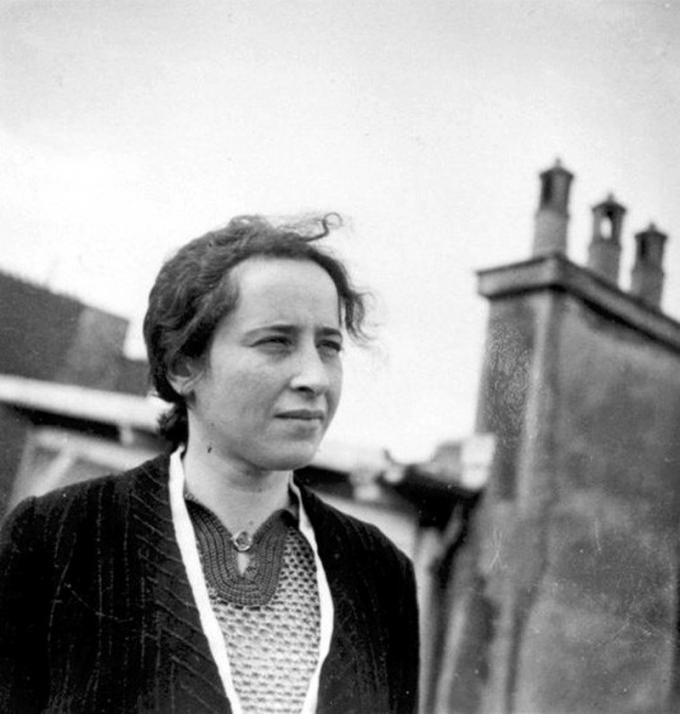 The first major cuts to UK university funding took place in the 1980s, as part of a project of privatisation that diminished the state’s commitments to the public sphere. The demand for accountability in the public sector, for “value for money”, was crucial to the ideological acceptance of this process. Universities adopted a business-like efficiency, encapsulated in the mantra of “doing more with less”. Success in making economies then provided the rationale for further cuts, for we were now “doing more” than was previously thought necessary, and so could accommodate additional cutting of resources; and if we failed, we deserved to be cut entirely, for we had failed in doing what was necessary. This argument led to a rationale for what happened finally in 2010, when the UK government formally withdrew all funding for the teaching of arts, humanities and social sciences, and cut the general budget by 80 per cent following the Browne Review. The effects of the cuts have been gradual and insidious, but substantive:we now no longer research as we wish, teach as we wish, or pursue those congenial studies that Robbins wanted to protect. Arendt’s fear — that academics would become servants of their governments — was well founded. In 1992, the UK University Grants Committee (UGC) was replaced by the Higher Education Funding Councils (HEFCE) and the change of title brought into law a change of practice. Where the UGC had acted as a buffer between academy and government, to stop us becoming civil servants, HEFCE’s management statement virtually required that we make our academic freedoms subservient to the state. Paragraph 3.4.2 of that statement requires that “The Chairman [of HEFCE] is responsible to the Secretary of State. The Chairman shall aim to ensure that the HEFCE’s policies and actions support the wider strategic policies of the Secretary of State.” HEFCE became an arm of government; and, without debate, the dominos fell. Vice-chancellors became agents of HEFCE, and academics — no longer “authorities” — became human resources in the advancement of government strategy. The university — without legislation — was now tacitly politicised, and our research and teaching legally constrained and restricted. It is important to state that things are not always as crude as this on the ground. Academics continue to maintain their integrity and independence in their research and teaching, but this is despite the prevailing norms, and their chances of official recognition are therefore much diminished. Yet the perception of academics as accountable to the requirements of the government of the day, rather than the demands of intellectual inquiry, has become entrenched: our main priority is to serve business and to do whatever government decides is necessary for the economy. Charles Clarke, as Secretary of State for Education, argued in 2003 that “We have to make better progress in harnessing knowledge to wealth creation.” Consequently, the 2003 Lambert Review identified “a need for the government to support university departments which are doing work that industry values”; and it went on to claim that “Public funding for basic research … is intended to benefit the economy.” Later, the 2011 Wilson Review stated that “Universities form the supply chain for business.” These views are now so commonplace that they provoke no debate.
The first major cuts to UK university funding took place in the 1980s, as part of a project of privatisation that diminished the state’s commitments to the public sphere. The demand for accountability in the public sector, for “value for money”, was crucial to the ideological acceptance of this process. Universities adopted a business-like efficiency, encapsulated in the mantra of “doing more with less”. Success in making economies then provided the rationale for further cuts, for we were now “doing more” than was previously thought necessary, and so could accommodate additional cutting of resources; and if we failed, we deserved to be cut entirely, for we had failed in doing what was necessary. This argument led to a rationale for what happened finally in 2010, when the UK government formally withdrew all funding for the teaching of arts, humanities and social sciences, and cut the general budget by 80 per cent following the Browne Review. The effects of the cuts have been gradual and insidious, but substantive:we now no longer research as we wish, teach as we wish, or pursue those congenial studies that Robbins wanted to protect. Arendt’s fear — that academics would become servants of their governments — was well founded. In 1992, the UK University Grants Committee (UGC) was replaced by the Higher Education Funding Councils (HEFCE) and the change of title brought into law a change of practice. Where the UGC had acted as a buffer between academy and government, to stop us becoming civil servants, HEFCE’s management statement virtually required that we make our academic freedoms subservient to the state. Paragraph 3.4.2 of that statement requires that “The Chairman [of HEFCE] is responsible to the Secretary of State. The Chairman shall aim to ensure that the HEFCE’s policies and actions support the wider strategic policies of the Secretary of State.” HEFCE became an arm of government; and, without debate, the dominos fell. Vice-chancellors became agents of HEFCE, and academics — no longer “authorities” — became human resources in the advancement of government strategy. The university — without legislation — was now tacitly politicised, and our research and teaching legally constrained and restricted. It is important to state that things are not always as crude as this on the ground. Academics continue to maintain their integrity and independence in their research and teaching, but this is despite the prevailing norms, and their chances of official recognition are therefore much diminished. Yet the perception of academics as accountable to the requirements of the government of the day, rather than the demands of intellectual inquiry, has become entrenched: our main priority is to serve business and to do whatever government decides is necessary for the economy. Charles Clarke, as Secretary of State for Education, argued in 2003 that “We have to make better progress in harnessing knowledge to wealth creation.” Consequently, the 2003 Lambert Review identified “a need for the government to support university departments which are doing work that industry values”; and it went on to claim that “Public funding for basic research … is intended to benefit the economy.” Later, the 2011 Wilson Review stated that “Universities form the supply chain for business.” These views are now so commonplace that they provoke no debate.
Malleable public opinion — a threat to free expression
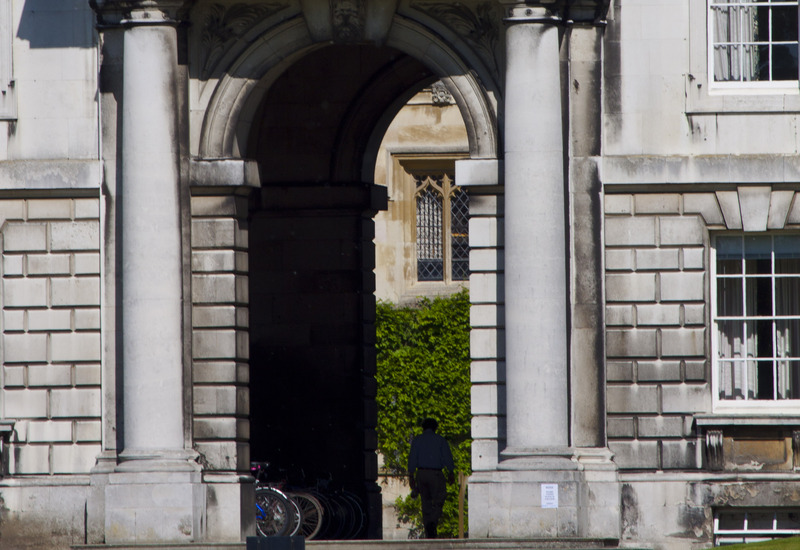
Jonathan Mitchell | Demotix
In this now quasi-official view of the university, research and teaching that do not serve business or wealth creation are seen as luxuries; and it is equally assumed that luxuries should not be funded from the public purse. The academic who works in medieval theology or French experimental fiction is in an invidious position: the classroom work must highlight not academic issues but rather skills that are transferable to business or wealth creation. The “luxury” of serious critical thinking on matters of theological politics or of relations between art and society — a luxury that might provoke new thought and new freedoms beyond the academy — is now less legitimate. Academic and other freedoms are being diminished, and education itself drastically impoverished. As a result, dissident thought is sacrificed to a tacit demand for conformity. We are expected essentially to validate whatever it is that public opinion decides is the genuine or proper existing states of affairs, and thus to confirm our cultural identity. Yet as Christopher Hitchens once put it, the greatest threat to freedom of expression today is not government but a malleable public opinion. If the public is genuinely to extend our freedoms and possibilities, then such opinion needs to be subjected to critique — sometimes by the exercise of academic freedom. The loss of our freedom to critique such constructions means that our identities — and thus our possibilities in life — are essentially in the hands of others. The point of research is not to rehearse what we know, but to explore and extend the boundaries of our ignorance and, by thus disturbing our idea of ourselves, to prise open those human possibilities that were previously undreamt of. Such ideals sit uneasily alongside the now normative corporatist ideas of accountable efficiency.
A matter of conformity
Virtually all research funding in the UK is now competitive: we bid to research councils for it, or we win it through competing in the Research Excellence Framework (REF, formerly Research Assessment Exercise). This exercise aims to concentrate research in ever decreasing numbers of institutions (thus rationalising cuts everywhere else). A good REF performance “earns” us our future research funds; and, cast in positive terms like this, the process obscures the fact that competition is reducing the state’s commitment to the total research capacity of the nation and its academies. Governments will not inflict the cuts; instead, peer review ensures that we do the government’s work and cut ourselves in a form of self-harm. We are like Kafka’s Joseph K, watching his executioners with their knife and realising that he is expected to wrench it from them and “plunge it into his own breast”.  Much research is published in scholarly journals. These now also have rankings, with some having higher “impact factors” than others. Academics are effectively required to seek publication in those highly ranked places, as the journals themselves become proxies for measuring the value of research. A piece in Physics Letters is ranked excellent by the REF, axiomatically; recognition of excellence is harder to secure in the new upstart journals. However, all journals have their own scholarly priorities and preferences, sometimes even ideological preferences in the humanities and social sciences. To be regarded as excellent, my research must be recognised by my peers; but, if good research is by definition marked by dissidence, then such evaluations can pose awkward difficulties. The likelihood will be for research to be considered excellent precisely to the extent that it confirms the basic principles of my peers and conforms to their priorities. So, farewell freedom, as I skew my work to get it into Physics Letters ; and thus the REF restricts the thinking behind our increasingly sclerotic research base. Crucially, universities increasingly require that academics make sure that their research conforms to that narrowed base, in order to secure more funding — more funding that will, in turn, eviscerate the now anorexic research base further, and decrease the freedom to research as we would wish. If you want the funding that comes with prestige, make sure your work fits in. Academic freedom becomes subservient to academic orthodoxy.
Much research is published in scholarly journals. These now also have rankings, with some having higher “impact factors” than others. Academics are effectively required to seek publication in those highly ranked places, as the journals themselves become proxies for measuring the value of research. A piece in Physics Letters is ranked excellent by the REF, axiomatically; recognition of excellence is harder to secure in the new upstart journals. However, all journals have their own scholarly priorities and preferences, sometimes even ideological preferences in the humanities and social sciences. To be regarded as excellent, my research must be recognised by my peers; but, if good research is by definition marked by dissidence, then such evaluations can pose awkward difficulties. The likelihood will be for research to be considered excellent precisely to the extent that it confirms the basic principles of my peers and conforms to their priorities. So, farewell freedom, as I skew my work to get it into Physics Letters ; and thus the REF restricts the thinking behind our increasingly sclerotic research base. Crucially, universities increasingly require that academics make sure that their research conforms to that narrowed base, in order to secure more funding — more funding that will, in turn, eviscerate the now anorexic research base further, and decrease the freedom to research as we would wish. If you want the funding that comes with prestige, make sure your work fits in. Academic freedom becomes subservient to academic orthodoxy.
“The Big Society” and “Connected Communities”
The process can be politicised too, as we saw in June 2010, when the coalition government’s Big Society agenda became explicitly a funding priority for the research councils. At the centre of this was a political hijacking of an interdisciplinary project called “Connected Communities”, led by the Arts and Humanities Research Council (AHRC). When the AHRC held its first summit on the programme, Shearer West, the AHRC’s director of research, gave a presentation which set the scene for the research programme and its funding explicitly in terms of the Big Society framework. The only other presentation archived on the AHRC website from that summit was given by Bert Provan of the Department of Communities and Local Government. His title: “Connected Communities; or, ‘Building the Big Society””. If you want funding to carry out research, make sure you centre it on serving the political agenda. Similar strictures afflict teaching. We no longer teach as we wish, but according to the logic of cuts and its attendant economics. Teaching, like research, is inherently unpredictable; but such unpredictability cannot be permitted in a system grounded in efficient accountability. In teaching, especially with very high tuition fees, quality must be assured by our Quality Assurance Agency (QAA). Now that all degrees are modular, thought is compartmentalised; knowledge becomes reduced to information; and learning becomes simply the managing or manipulation of that information. The economics here understands knowledge as a commodity, and not a dynamic process that might involve the changing of minds and thus also of identities. Commodities are never critical of anything, but simply available for purchase; and that purchase is intended simply to assure the consumer of his identity, to “enrich” an already existing and settled identity. It’s just that the freedom of that identity is now reduced and narrowed to matters of consumer choice between modules. This is all the more pressing when the UK deals with the 80 to 100 per cent cut in state funding of teaching by effecting a massive tuition-fee hike whose effect is to monetise teaching and learning. Teachers are required by QAA to predict outcomes of their teaching, so that the student knows what it is that she is “buying”. Now, all students need to be the same as well; their futures safely predicted, managed, controlled. There is no academic freedom left in teaching — unless we ignore these strictures and carry out our work essentially in clandestine and unofficial fashion.  Accountability, though seen most vividly as part of the logic of cuts, can have further unexpected repercussions. When a former University College London (UCL) student, Umar Farouk Abdulmutallab, was found to be involved in a plot to blow up a flight from Amsterdam to Detroit, Universities UK (UUK, the vice-chancellors’ association) drew up a report on freedom of speech on campus. It was interesting that they felt implicated simply because Abdulmutallab had attended UCL. No doubt, he also frequented coffee shops, but there was no similarly anxious report from Starbucks. UCL, however, chose to identify freedom of speech in academia as a subject for policing, as if the university were a site of terror by association, and therefore responsible for terrorist acts. In the UUK report, the 1988 Reform Act statement is rehearsed: academic freedom is sacrosanct “within the law”. It is in that phrase, “within the law” that the report finds the absolute limit of academic freedom. On one hand, this sounds eminently reasonable: the university should not encourage criminality. However, in principle, it changes the accountability of the academic again. Where Jaspers thought that the academic’s accountability was to the intellectual process itself, and where REF and QAA see accountability as being political and consumerist, UUK’s report makes the academic into an official, policing “the law of the land”. But which land? In an age of globalisation especially, intellectual work knows no such borders. Further, what if the law itself is a bad law or a law that lacks legitimacy? Is it not actually incumbent on the academic to point this out and speak out about it? UUK appears to take the view that the results of our research and teaching must be in conformity with the law of the land; but the text of the 1988 Act might properly be read as saying that our academic freedoms are themselves protected within or by the law. That is to say: the law protects us, even if what we discover calls the law into question. In what has by now become a classic procedure, UUK has imported the logic of accountability into academia. The result is the Quisling attitude of our vice-chancellors. On one hand, some fear speaking out lest it endangers either their own self-advancement or the competitive advancement of their institution; and on the other, there are some who do not even see the dangers inherent in their quiescent compliance. Both have fully internalised the economic logic that endangers our freedoms. Academic freedom is at the core of the democratic intellect and a free culture. It must be fought for.
Accountability, though seen most vividly as part of the logic of cuts, can have further unexpected repercussions. When a former University College London (UCL) student, Umar Farouk Abdulmutallab, was found to be involved in a plot to blow up a flight from Amsterdam to Detroit, Universities UK (UUK, the vice-chancellors’ association) drew up a report on freedom of speech on campus. It was interesting that they felt implicated simply because Abdulmutallab had attended UCL. No doubt, he also frequented coffee shops, but there was no similarly anxious report from Starbucks. UCL, however, chose to identify freedom of speech in academia as a subject for policing, as if the university were a site of terror by association, and therefore responsible for terrorist acts. In the UUK report, the 1988 Reform Act statement is rehearsed: academic freedom is sacrosanct “within the law”. It is in that phrase, “within the law” that the report finds the absolute limit of academic freedom. On one hand, this sounds eminently reasonable: the university should not encourage criminality. However, in principle, it changes the accountability of the academic again. Where Jaspers thought that the academic’s accountability was to the intellectual process itself, and where REF and QAA see accountability as being political and consumerist, UUK’s report makes the academic into an official, policing “the law of the land”. But which land? In an age of globalisation especially, intellectual work knows no such borders. Further, what if the law itself is a bad law or a law that lacks legitimacy? Is it not actually incumbent on the academic to point this out and speak out about it? UUK appears to take the view that the results of our research and teaching must be in conformity with the law of the land; but the text of the 1988 Act might properly be read as saying that our academic freedoms are themselves protected within or by the law. That is to say: the law protects us, even if what we discover calls the law into question. In what has by now become a classic procedure, UUK has imported the logic of accountability into academia. The result is the Quisling attitude of our vice-chancellors. On one hand, some fear speaking out lest it endangers either their own self-advancement or the competitive advancement of their institution; and on the other, there are some who do not even see the dangers inherent in their quiescent compliance. Both have fully internalised the economic logic that endangers our freedoms. Academic freedom is at the core of the democratic intellect and a free culture. It must be fought for. 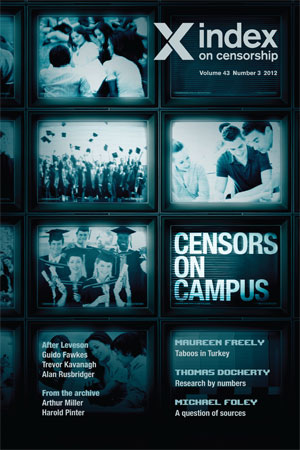
Thomas Docherty is professor of English and of Comparative Literature in the University of Warwick and the author of many books
This article appears in Censors on Campus. Click here for subscription options and more




